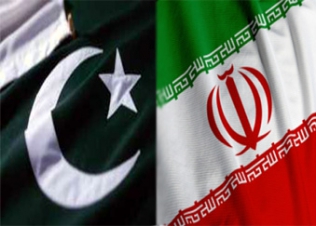Pakistan Needs to Get on with Pipeline: Minister
The Iran-Pakistan (IP) gas pipeline is the best way to help Pakistan bridge gas deficit and the project should be completed at the earliest opportunity, Pakistan's former finance minister Hafiz Pasha told Islamic Republic News Agency (IRNA) in an interview.
“This project has to be revived at the earliest, because it is the most viable and feasible project for Pakistan,” he told the Iranian news agency last week. The gas price is very attractive and it should be the first priority, he said.
The 1,900-km pipeline project was delayed by sanctions on Iran. Although Iran has almost completed its section of the line, Pakistan is yet to start building the pipeline from the border because of US pressure. Iran's gas exports were to start on January 1, 2015 but Pakistan called for an extension of the project. Recent media reports suggest that the two parties are negotiating amendments in the gas deal. The current agreement was signed in 2009.

Many believe that with price of LNG so low, Islamabad has shifted its focus to that as a way of meeting domestic demand as the pipeline still attracts some sanctions. Officials from both Iran and Pakistan have time and again said both countries are determined to complete the project; but with finance hard to come by, the future of the project looks extremely uncertain.
The south Asian nation began importing LNG last year. This year, two Pakistani companies signed long-term LNG import deals with Qatar and both state owned and private entities have been busy building LNG import infrastructure. The country’s first floating storage and regasification unit became operational in March 2015 and last week BW Group and Pakistan GasPort signed a deal for the second floating unit, which is expected to be commissioned early-2017.
Chinese and Russian companies are moving forward with their plans to build the pipelines needed to transport re-gasified LNG to major cities in the north. The government has made it clear that LNG will play an increasing role in Pakistan’s energy economy.
Pakistan’s has been facing a massive gas shortage which has severely impacted its industrial activity.
Shardul Sharma


